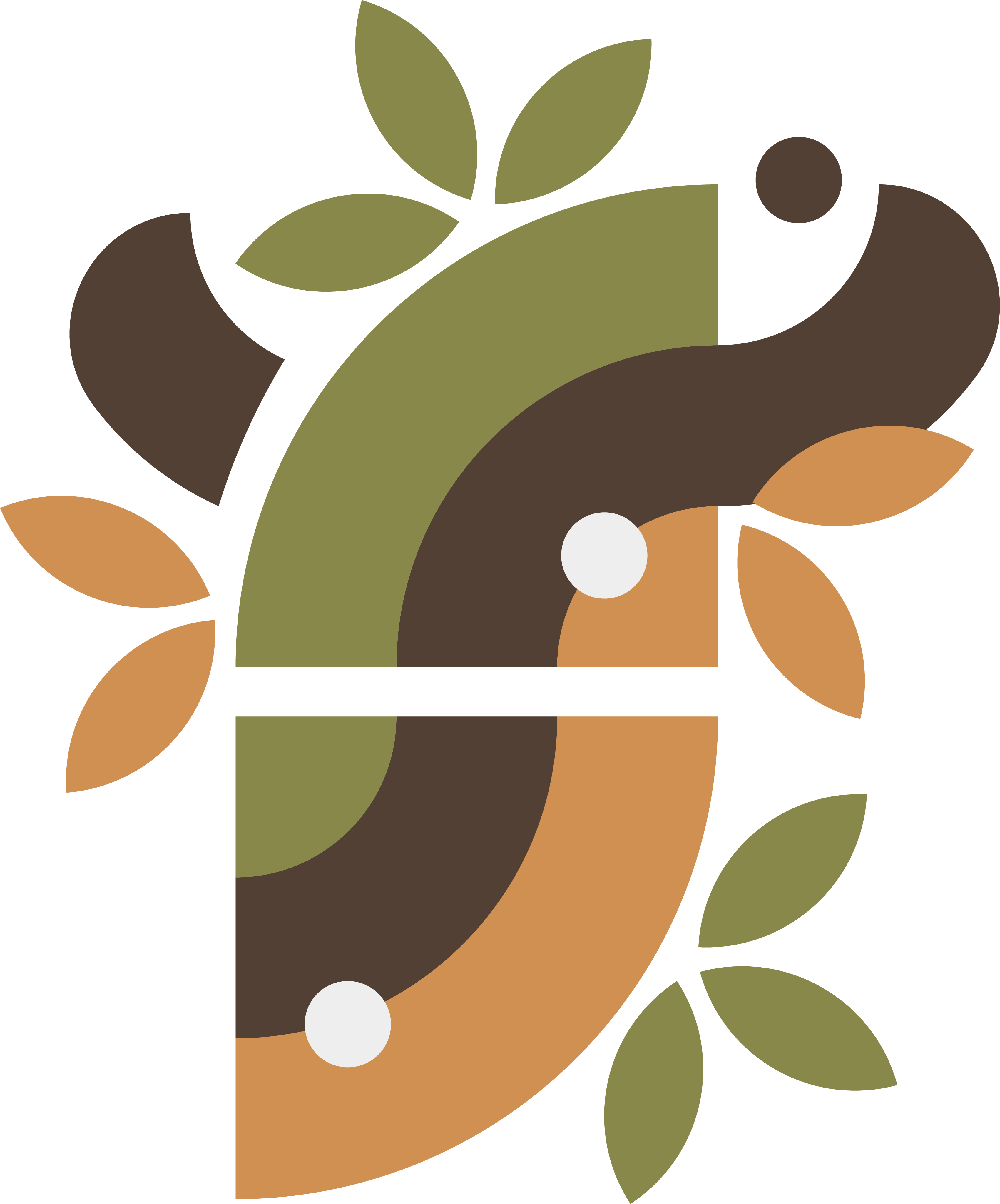SAGE Pillars
The Soil and Agroecosystem (SAGE) Project is dedicated to advancing soil health and sustainable land stewardship in partnership with Indigenous communities. Rooted in Indigenous knowledge systems and agroecological science, SAGE offers knowledge sharing opportunities centred around four interconnected pillars:
Production Agriculture & Beneficial Management Practices (BMPs)
First Nations steward over 1.5 million acres of cropland across the three Prairie provinces, largely through rental agreements with non-Indigenous farmers. These agricultural landscapes provide economic benefit to communities through rental revenue; however, agricultural land use and management practices have environmental impacts that may be of concern to community members.
![]() SAGE delivers hands-on education that empowers First Nations land managers, leadership, and farmers to adopt BMPs that improve soil and ecosystem health, while sustaining the long-term productivity of their soils. Working with partners, SAGE offers field tours, demonstration site tours, and webinars for participants to gain practical knowledge on BMPs that are adapted to the environment and climate conditions of the Canadian Prairies, particularly in the Black Soil Zone.
SAGE delivers hands-on education that empowers First Nations land managers, leadership, and farmers to adopt BMPs that improve soil and ecosystem health, while sustaining the long-term productivity of their soils. Working with partners, SAGE offers field tours, demonstration site tours, and webinars for participants to gain practical knowledge on BMPs that are adapted to the environment and climate conditions of the Canadian Prairies, particularly in the Black Soil Zone.
Buffalo Rematriation
As a keystone species of the grassland ecosystem, buffalo played a role in shaping the soils that form the foundation of Prairie agroecosystems. Buffalo provide a living model for how healthy ecosystems function—when they have the room to roam, their grazing patterns, movement, and presence enrich soil health, promote biodiversity, and regenerate prairie landscapes. Indigenous-led buffalo rematriation initiatives restore kinship connections with buffalo, contribute to the revitalization of Indigenous food systems, and represent a contemporary model of Indigenous agriculture on the Prairies, grounded in ecological stewardship and relational reciprocity.
![]() SAGE offers land-based learning circles in partnership with experts in buffalo ecology and stewardship to learn about how buffalo rematriation is a form of ecosystem restoration and a pathway to food sovereignty. Our annual Keystone Connection Buffalo Retreats are intimate gatherings on the land, with experts in buffalo ecology and caretaking, where participants observe buffalo in large-scale rangelands in national parks and conservation areas as well as with community-stewarded herds. Participants come from Indigenous communities at various stages of buffalo rematriation; from those who have stewarded herds for years, to those in the initial stages of planning for buffalo’s return to their lands—most communities are also signatories to the Buffalo Treaty.
SAGE offers land-based learning circles in partnership with experts in buffalo ecology and stewardship to learn about how buffalo rematriation is a form of ecosystem restoration and a pathway to food sovereignty. Our annual Keystone Connection Buffalo Retreats are intimate gatherings on the land, with experts in buffalo ecology and caretaking, where participants observe buffalo in large-scale rangelands in national parks and conservation areas as well as with community-stewarded herds. Participants come from Indigenous communities at various stages of buffalo rematriation; from those who have stewarded herds for years, to those in the initial stages of planning for buffalo’s return to their lands—most communities are also signatories to the Buffalo Treaty.
Indigenous Food Sovereignty
Indigenous soil stewardship is grounded in Indigenous food systems and sovereignty. Ancestral foodways are being revitalized through small-scale horticulture, seed saving, and traditional food growing practices, reconnecting Indigenous farmers to soil health stewardship.
![]() SAGE cultivates knowledge-sharing spaces through one-on-one mentorship, a virtual seed saving learning circle, and community land-based pop-up workshops. Participants learn how soil health supports the growth of culturally significant foods, and how Indigenous stewardship practices, in turn, support soil health.
SAGE cultivates knowledge-sharing spaces through one-on-one mentorship, a virtual seed saving learning circle, and community land-based pop-up workshops. Participants learn how soil health supports the growth of culturally significant foods, and how Indigenous stewardship practices, in turn, support soil health.
Soil Health Assessment and Monitoring
Underpinning all these pillars is the importance of healthy soils to Indigenous agricultural initiatives—whether to support small-scale community food systems, large-scale production agriculture, or buffalo rematriation, healthy soils are critical to their success. Agricultural land use decisions are made at the community-scale, encompassing a broad spectrum of agricultural initiatives at multiple scales.
![]() SAGE builds community capacity to assess and monitor soil health using both scientific tools and Indigenous indicators of land health. We meet communities where they are at with soil stewardship and share knowledge on how soils interact with agricultural land use decisions—at all scales of agroecosystem management. Through classroom, virtual, and hands-on land-based workshops, we train land managers and community members in soil sampling techniques, soil health assessments, soil test interpretation, and soil mapping to inform sustainable agricultural land management, BMP implementation, and restoration of soil health on degraded lands.
SAGE builds community capacity to assess and monitor soil health using both scientific tools and Indigenous indicators of land health. We meet communities where they are at with soil stewardship and share knowledge on how soils interact with agricultural land use decisions—at all scales of agroecosystem management. Through classroom, virtual, and hands-on land-based workshops, we train land managers and community members in soil sampling techniques, soil health assessments, soil test interpretation, and soil mapping to inform sustainable agricultural land management, BMP implementation, and restoration of soil health on degraded lands.
Together, these pillars support resilient agroecosystems, cultural revitalization, and community-led stewardship of the land.
Is your community looking to participate? Explore our upcoming workshops and events, or contact us to learn more.
